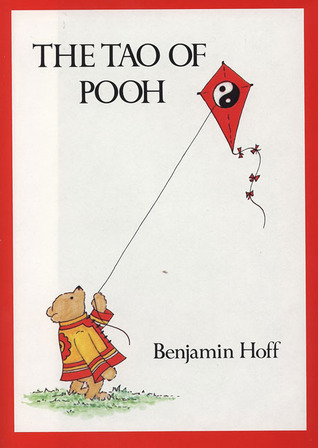Chapter 4: Spelling Tuesday
byChapter 4: Spelling Tuesday, In a passage from Winnie-the-Pooh, Pooh visits Owl in the Hundred Acre Wood, hoping that Owl can help answer his questions. Owl represents the kind of busy, scholarly figure that Taoist philosophers like Lao-tse and Chuang-tse often critiqued, as they believed that such individuals were too caught up in complex thinking to grasp the simplicity of Taoist principles. In the modern world, scholars are still often the ones who study Taoism. However, rather than experiencing life directly and learning from it, they tend to overanalyze concepts and focus on abstract ideas. Scholars like Owl seek “Knowledge for the sake of Knowledge,” failing to understand that true knowledge in Taoism is not found through books but through lived experience and connection with the world.
In Winnie-the-Pooh, Rabbit admires Owl because he knows how to spell “Tuesday.” However, when Pooh asks Owl about the word, Owl mistakenly claims that “Tuesday” starts with “Two,” reasoning that it is the second day of the week. Owl also calls the following day “Thirdsday,” which confuses Pooh. Piglet, in his simple yet insightful way, reminds them that it’s actually today, and Pooh happily declares that today is his favorite day. Hoff humorously points out that, like Owl, many scholars are so absorbed in thinking about what comes next or in overcomplicating things that they forget to appreciate the present. Similarly, scholars often use complex language unnecessarily, just as Owl does when he uses phrases like “customary procedure,” which confuses Pooh. This tendency to overcomplicate serves no real purpose except to make scholars seem more knowledgeable than they may be.
This dynamic highlights an important Taoist observation: true wisdom comes not from excessive thinking, but from real-world experience. Pooh reminds Hoff that “lots of people talk to animals,” but “not very many listen.” This simple statement reflects a core Taoist value: true understanding comes not from merely speaking or reading about the world but from interacting with it and listening carefully. The Taoist poet Han-shan captured this idea well, noting that while a scholar might laugh at his own rough poetry, he would laugh just as much at a scholar’s attempt to describe the sun—like a blind man attempting to describe light. In the Winnie-the-Pooh books, Pooh himself often engages with the world in a direct, honest way, free of pretension. In one of his reflections, Pooh wonders whether things are “these or those” or whether “who is what and what is who.” Hoff reflects that this curious, open-minded questioning is the opposite of the scholar’s obsession with categorizing and labeling everything. While scholars focus on defining and naming things, Pooh finds meaning in simply experiencing life.
The actions of Owl also reflect this disconnect between intellectualism and true understanding. For example, Owl, engrossed in writing about “Aardvarks and Their Aberrations,” uses Hoff’s pencil to carry out his intellectual pursuits. However, when the wind blows his house down while he’s distracted by his writing, his immediate response is to blame Pooh instead of recognizing his own distraction as the cause. This tendency to blame others for problems that are often self-created is common among those who rely too heavily on abstract thinking and fail to engage with the present moment. Hoff points out that scholars like Owl are often so caught up in their intellectual pursuits that they overlook the simple, real-world interactions that hold the key to understanding life.
A similar theme of misplaced pride is seen in another Winnie-the-Pooh story involving Eeyore, who spells the letter “A” with sticks and claims that his education makes him superior to Pooh and Piglet. However, when Rabbit proves that he also knows “A,” Eeyore is dismayed and bitterly kicks his sticks, feeling that his “education” no longer sets him apart. This moment highlights how ego and pride can distort understanding, and how the pursuit of knowledge for status can lead to disappointment. Pooh, in contrast, exemplifies the Taoist attitude of humility and simplicity. He does not seek knowledge for the sake of recognition, but instead values life as it comes, embracing each moment without the need for validation or status.
Through these stories, Hoff illustrates how Taoism offers a way of being in the world that values experience, simplicity, and connection over intellectualism and complexity. The Taoist philosophy encourages people to listen, observe, and engage with the world directly, rather than getting lost in abstract ideas or overthinking. In a world that often prioritizes knowledge and status, the simple wisdom of Pooh reminds us that true understanding comes from embracing the present, living authentically, and appreciating the world as it is. By letting go of the need to define everything and instead allowing life to unfold naturally, we can find deeper peace and fulfillment.
This chapter in Winnie-the-Pooh highlights a key Taoist lesson: that overcomplicating life and constantly striving for intellectual superiority can blind us to the simple truths around us. The Tao teaches that wisdom is not about what we know, but about how we live, and Pooh exemplifies this by navigating life with a sense of wonder, humility, and ease. In contrast to the scholarly approach that seeks to categorize and define, Pooh simply enjoys the world around him and lives in the moment. This lesson is one that resonates not only within the context of the Hundred Acre Wood but also in our own lives, urging us to appreciate the simplicity and beauty that exist when we allow ourselves to just be.

